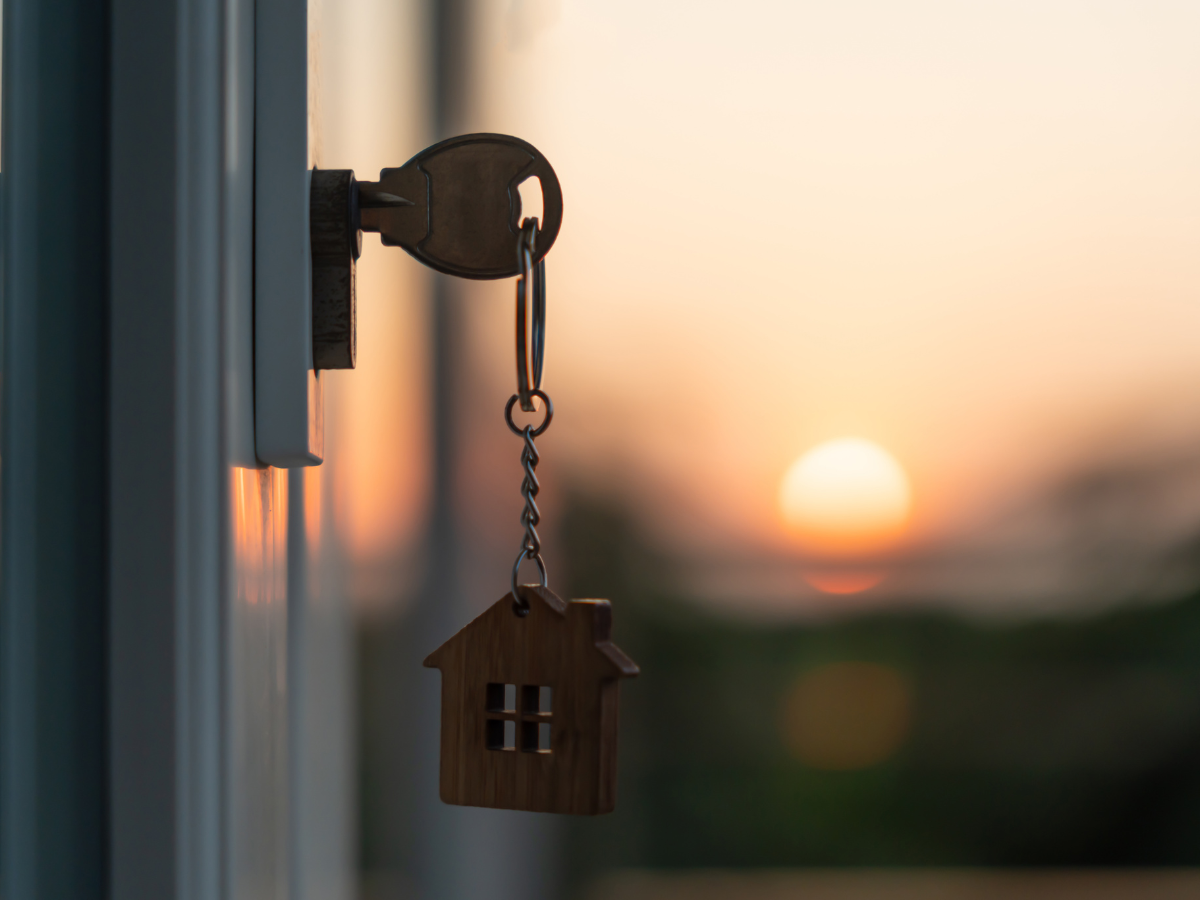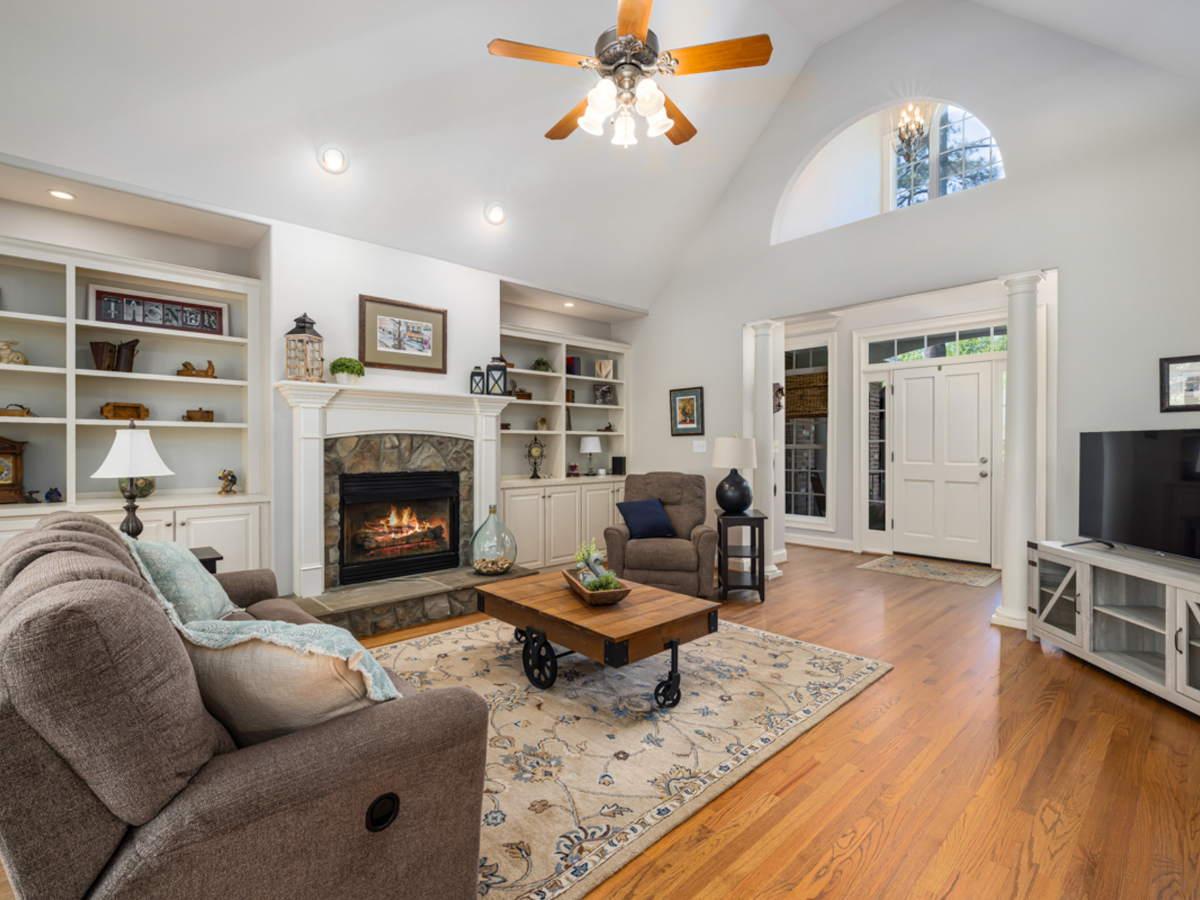Buying your first house is an outstanding achievement, but the many factors surrounding it make it rather daunting. Everything may appear complicated, from finances to selecting the right neighborhood. That excitement and apprehension are only natural when pursuing your dream of becoming a homeowner.
The good news? It’s okay and healthy to seek support; you are not alone. As you will learn from this post, armed with the correct information and assistance, you can confidently approach the journey.
This guide from Bryant Realty is designed to demystify the market and provide a clear plan to get you on the journey to homeownership.
Key Considerations Before Buying
Being ready to make decisions and take responsibility for buying your first home is crucial. This way, you will avoid disappointment and possible frustrations.
Below are a few key factors to help you with purchasing:
-
Assess Your Readiness
Buying a house is not just about a down payment; there are also extra charges including closing costs, home inspections, and moving costs. First-time buyers often underestimate these costs, and soon realize when they have started to mount.
Always have a proper saving strategy, note your credit score, and get pre-approval for a mortgage to establish how much you can borrow. These steps will assist in preparing you to make a reality check and avoid high expectations.
-
Location and Lifestyle Fit
Besides choosing a perfect house, it is the area you will be living in that will matter more since it will determine your lifestyle. Choose a location that corresponds to your interests and lifestyle needs.
Consider the traffic situation, school performance, nearby parks, stores, and hospital facilities. Accessibility is also essential. The area should be affordable relative to the goals you have for the future.
-
Prioritize Your Must-Haves
With the best houses in mind, also consider the essential things out there – the number of bedrooms, an open plan for the living room, kitchen, and diner, or the availability of a yard for the children or pet(s).
See, it’s ready to incorporate significant changes into the less important things like paint colors, fixtures, or minor finish details. Being flexible will assist you in identifying a home that meets those needs and preferences while not overspending.
-
Think About Future Growth
When considering your needs, think of how your home will meet those needs in the future. For instance, if you want to grow your family, consider a house with this potential.
Also, assess the ability for resale. A neighborhood with steady job growth, proper schools, and low incidences of criminal activities tends to hold value far better.
-
Build a Trusted Team
Surround yourself with experienced people who can assist you. A realtor, mortgage lender, and home inspector are also essential. Combined, they can help you avoid costly blunders, comprehend legal documents, and identify prospects of fraud.
-
Get Familiar with Loan Options
Besides, learning more about various loans and government programs is essential. FHA, VA, or USDA refer to loans aimed at making first-time buyers become homeowners fast.
Various state mortgage programs also provide promotional rate loans, grants, or deferred payments for down payment or closure costs. Being informed will help you obtain the most favorable conditions, which brings us to the best financing options.
Financing Options
Owning your first home is exciting, but financing a home can sometimes be quite perplexing. Given the plethora of loans and their conditions, it’s essential to understand your options.
-
Understanding Mortgage Types
The first strategic decision you will face is the type of mortgage to buy. Conventional fixed-rate mortgages are preferred due to their lock-in feature, which means the interest rate and monthly pay remain constant throughout the mortgage.
Meanwhile, adjustable-rate mortgages, or ARM, are loans initiated at a lower interest rate, but the rate fluctuates periodically. It suits homeowners expecting to sell or refinance in a few years.
For borrowers without solid credit histories or small down payments, there are government-insured loans like FHA loans. For military veterans and other eligible persons, there are VA loans that don’t need a down payment.
Every option is different in necessity and possibility, so it is essential to consider your chosen option to estimate how it will correspond to your budget and financial conditions.
-
Down Payment and Loans
A challenge seen primarily in first-time home buyers is a down payment. Fortunately, there are down payment aid solutions. Most governments and nonprofits provide grants or low-interest loans for this purpose.
These programs can help ease the financial pressures, making it easier to enter that market. As for these options, getting them as early as possible is always advisable to save time and money.
-
The Pre-Approval Process
Mortgage pre-approval is one of the most essential aspects when buying a home. A pre-approval letter from a lender informs the borrower of how much they qualify for depending on their income, credit score, and debt-to-income ratio.
This not only enables you to determine the worth to be paid but also allows you to outcompete other interested buyers, especially in competitive markets. Pre-approval can also help make the closing easier and worry-free and help you make your way to being a homeowner less stressful.
Common Mistakes to Avoid
Purchasing a first home is a huge step, and many things may go wrong if you don’t take enough time to prepare. While it may all seem somewhat cumbersome, you should note the common mistakes you may encounter to avoid them.
Below are some of the mistakes first-time buyers should avoid while buying a home.
1. Not Budgeting Enough
One of the significant mistakes that first-time buyers make when picking a house is that they are oriented on the price of a home without considering all possible expenses. If the purchase price alone suffices, there are also property taxes, insurance, repairs, and utility costs to consider.
For instance, more space means more energy bills. To avoid overlooking these expenses, ensure you prepare a proper budget that includes these costs. This approach means that when you take out a mortgage, all your finances are aligned to make you a homeowner, not a heavily indebted one.
2. Skipping the Inspection
Another terrible mistake is skipping home inspections, especially in today’s heated market, where buyers may feel the need to remove contingencies. A professional inspection is vital even if the home seems perfect or is newly constructed.
The inspectors can see problems like wiring problems, water damage, or even cracks in the foundation that you cannot easily see. It may sound like an extra measure that may build additional costs, but it is a worthwhile measure that can help avoid extra costs later. Nothing is as valuable as knowing a home’s real state before buying it.
3. Overextending Financially
Sometimes, it is easy to spend more than the maximum amount you have been approved for. Your credit span is agreed upon depending on your current position rather than future plans or emergencies.
A better thing to do is select a mortgage payment level that permits savings and flexibility. This means you can save money for emergencies.
We Can Guide You
Buying your first home is a significant achievement anyone can make in their lifetime, but it can be stressful if they are prepared for it. The basics of the home buying process, like establishing your budget, selecting the best mortgage, understanding the potential neighborhood, managing your expectations, and knowing common pitfalls, all should be done diligently for a successful transaction.
If you are in that state right now, the experts at Bryant Realty can help. They will ensure that every step of the process is well explained. Allow them to guide you through making the right decision and purchasing a home that fits your needs and budget.




